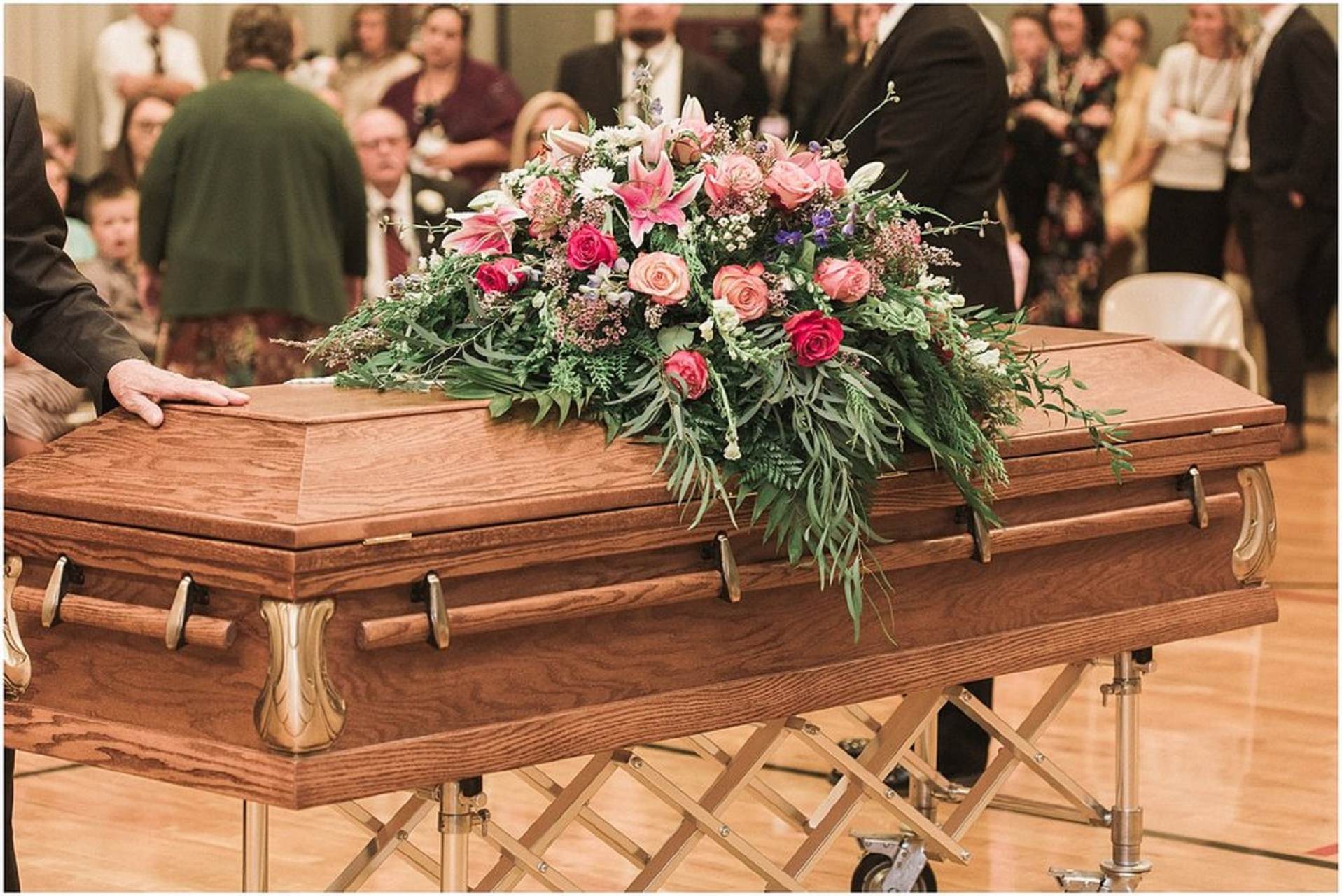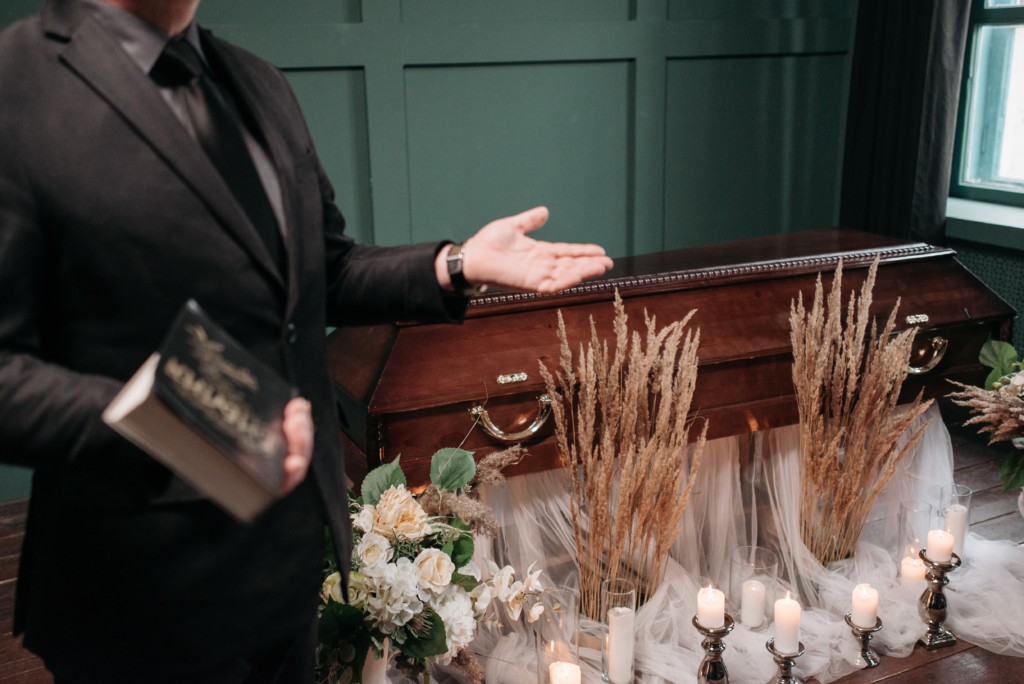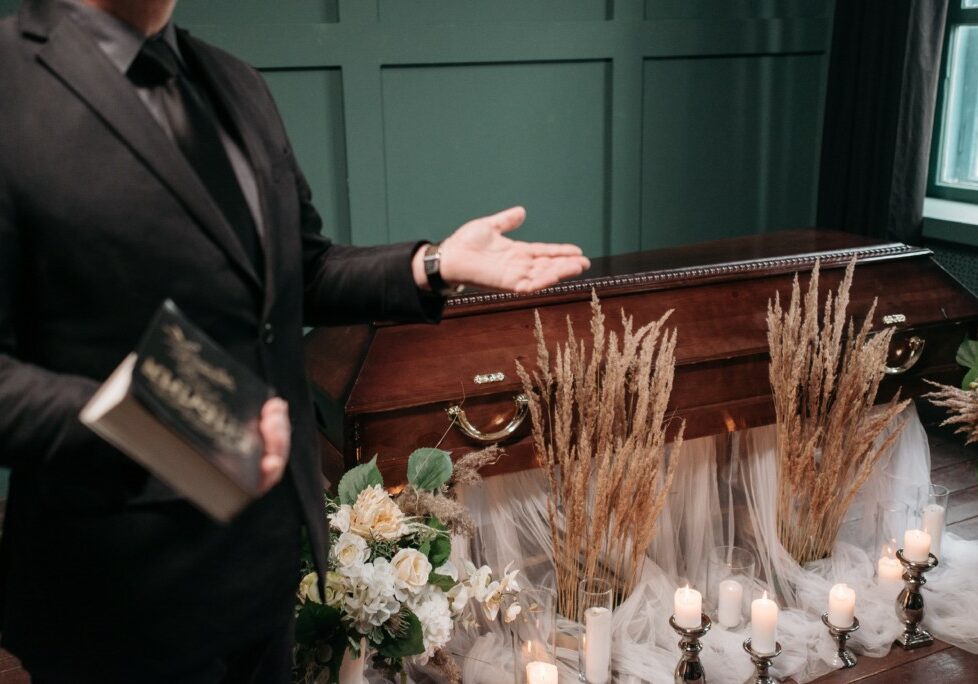
We don’t talk about death so it has become unfamiliar
Funeral ceremonies can serve different purposes for those involved. One function of a ceremony is to contain (accept and help to manage) distress and insecurity, and to signal a change. But, who is the funeral for? The departed or those in mourning? Difficulties can be created when this becomes and either/or choice. In fact, funerals are for both the dead and for the living. Compromise can be key.
If funerals are for the living as well as for the dead, what happens for the friends and family of the deceased at a funeral? In describing funerals, it is easy to airbrush out or to gloss over some of the difficulties that can arise, even where the deceased was a much-loved member of a close-knit family.
Letting go
A funeral is an opportunity for people to ‘say their last goodbye’, a ‘final farewell’. A funeral is an act of letting go – or release. The words of a committal generally reflect this: we release, we commit, we yield ….
For some the reality of loss only really begins to sink in at a funeral and this can be experienced as deeply shocking. If the deceased had been a large part of someone’s life: perhaps a partner, or a close loved one, the continued busyness of arranging the funeral can come to a juddering halt once the Funeral Director and Celebrant take control.

Containing emotions
Where things have gone unsaid, whether extreme gratitude, love, sadness, or anger, a funeral can be particularly difficult. A well-managed and well written funeral can help provide a framework to contain difficult emotions.
Sometimes, people will stress that the deceased was not religious and then ask for a hymn or a prayer. For those in need of something to hang onto, a ceremony can provide comfort in the form of structure – a beginning, middle and end – and the familiar patterns of words. To an outsider such choices can seem strange, but to the person dealing with grief they can feel necessary.
The emotions around untimely death, violent or sudden death can easily overwhelm mourners. Funerals like these have to do more than just retell the story of a life that has been lived.
Change in status

Relationships
The finality of a funeral draws attention to relationships. Difficulties that existed between the deceased and those who still live, and difficulties among the living can all threaten to overwhelm a funeral. Even the much-loved member of a happy family will have had their difficult sides, perhaps they ‘could be a bit of a bugger’ or ‘had a real temper on them’. Softened with a story these moments of truth can be received with relief – the whole person can be acknowledged. In the end, the dead have to be laid to rest emotionally as well as literally if the living are to move on with their lives.
And what if the difficult reality of a person is mixed with a belief that one ‘shouldn’t speak ill of the dead’? This can be a real dilemma for people and leave them feeling they need to tell only half a story. Managing this double bind is part of the art of the Celebrant – giving a meaningful voice. A whole person needs to be seen and released, and a Celebrant can assist with balance in this delicate area.
Celebrants however are not counsellors, and more specific help may be sought by those involved in the funeral if it is required.

Balancing needs
Funerals are occasions when those who are left behind also say something to each other – often wordlessly – through the shape, content and tone of the funeral they have planned. Leaving to Monty Python’s ‘Always look on the bright side of life’ says something about deceased, but also about and to the living. The dead can no longer hear.
Balancing needs can happen easily and unconsciously but it can be a challenge. For example, perhaps the deceased ‘wanted no fuss’ but several friends want to speak or read poems. It can help to remember not that everyone needs to be kept happy. There are always choices to be made. It might be easier to manage a desire to share stories at a wake or memorial than a funeral.
We talk of ‘paying our respects’ and of ‘being there to support …’ People worry about ‘speaking ill of the dead’. These concerns convey messages among the living about common, unspoken anxieties:
• was my loved one a good person despite their faults?
• Can I shoulder the responsibility handed to me?
• Can I do the right thing?
• Am I a good son/ daughter/ wife/ friend?
• Will I be next? Who will see to my funeral?
And so there can be a tension between solemnity and celebration; both need to be respected at this emotional time.
subscribe
drop us your email and we'll send you beautiful ideas to inspire your perfect celebration



















